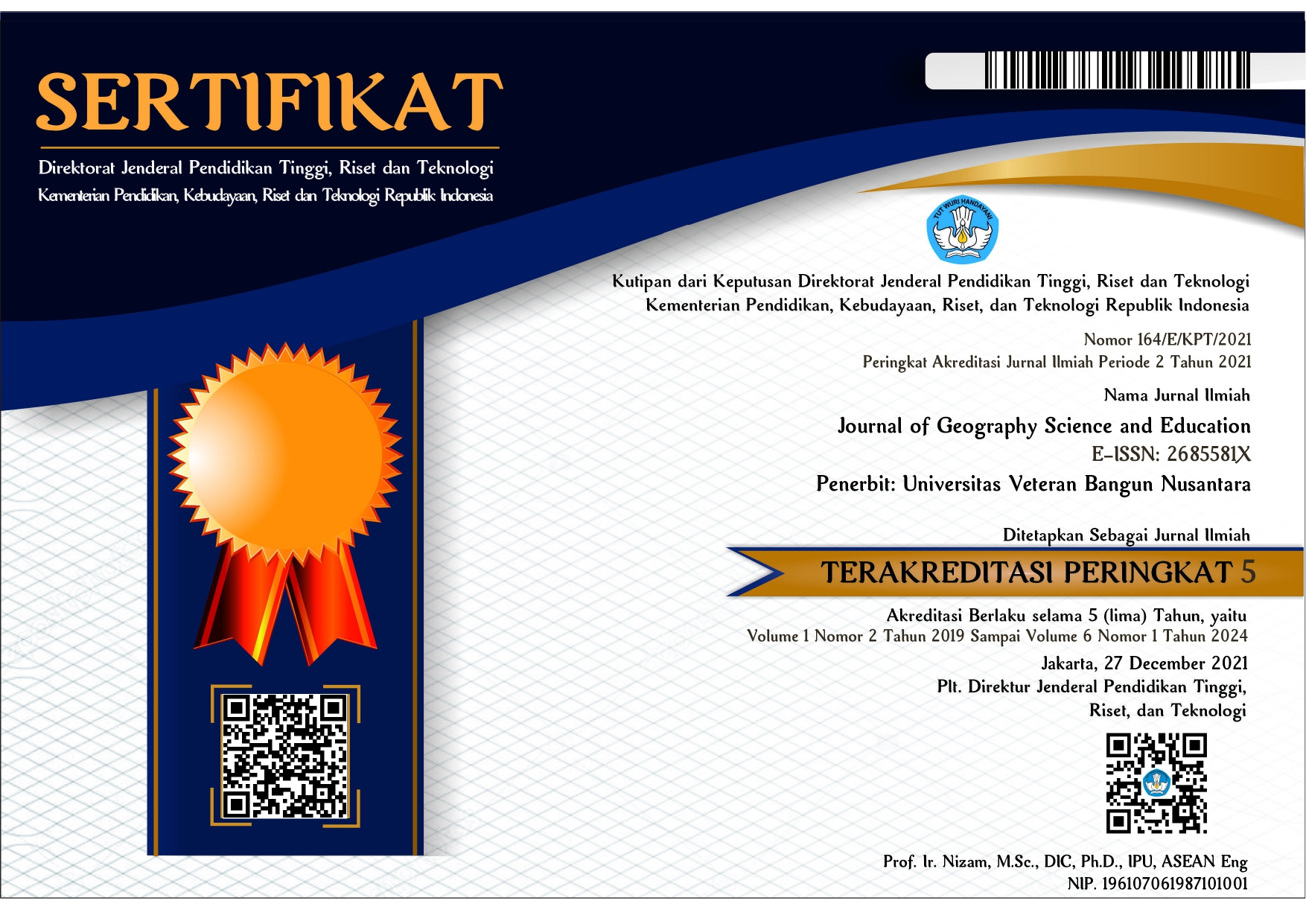G-Form as a for Collecting Student Assignments during Online Learning
DOI:
https://doi.org/10.32585/jgse.v3i2.2059Kata Kunci:
g-form_1 student assignments _2 online learning _3Abstrak
The Covid-19 pandemic has caused changes in all aspects of life, one of which is the education system. Changes in the education system make it difficult for students to receive material because learning that is usually done conventionally turns into distance learning or is done online. Its implementation cannot be separated from the use of information technology. So that students and teachers are required to be able to operate all online learning media such as Google Classroom, Google Forms, Google Meet. In online assignments, students have obstacles in terms of collecting online-based assignments, but students are required to collect evidence of work results to school so that it has an impact on the assessment and grades of student assignments. The purpose of this article is to solve the problem of collecting student assignments during online learning. This study uses a descriptive qualitative method by paying attention to the collection of student assignments during online learning through the G-Form (Google Form). Based on the results of the study, it can be concluded that using the g-form as a solution in collecting online learning assignments at SMA Negeri 1 Nguter Sukoharjo.
Unduhan
Referensi
Anugrahana Andri. 2020. Barriers, Solutions and Expectations: Online Learning During the Covid-19 Pandemic Period By Elementary School Teachers. Scholaria: Journal of Education and Culture. 10(3):282-289.
Bekti Mulatsih. special edition of COVID-19 pandemic KBM. Application of Google Classroom, Google Form, and Quizizz Applications in Chemistry Learning during the Covid-19 Pandemic. Teacher's Idea: Journal of Teacher's Scientific Work. 5 (1).
Ngafifah Siti. 2020. Use of Google Forms in Improving the Effectiveness of Evaluation of Siwwa's Online Learning during the Covid19 Period at Baitul Muslim Qay Jepara IT Elementary School. As-Sallam I. IX (2):123-144.
Setyaningrum Annisa Ayu. 2021. Improving the Quality of Online Learning during the Covid-19 Pandemic Using Social Media Groups Whatsapp and Youtube. Journal of Education. 7(2):520-526.
Suprapmanto, J and Utomo. 2021. Analysis of Online Learning Problems during Covid 19 pandemic and its solutions. Belandika Journal. 3(2):15-19.
Unduhan
Diterbitkan
Cara Mengutip
Terbitan
Bagian
Lisensi
License and Copyright Agreement
In submitting the manuscript to the journal, the authors certify that:
- They are authorized by their co-authors to enter into these arrangements.
- The work described has not been formally published before, except in the form of an abstract or as part of a published lecture, review, thesis, or overlay journal. Please also carefully read JGSE's Posting Your Article Policy at http://pubs2.ascee.org/index.php/ijele/about/editorialPolicies#custom-5
- That it is not under consideration for publication elsewhere,
- That its publication has been approved by all the author(s) and by the responsible authorities – tacitly or explicitly – of the institutes where the work has been carried out.
- They secure the right to reproduce any material that has already been published or copyrighted elsewhere.
- They agree to the following license and copyright agreement.
Copyright
Authors who publish with Journal of Geography Science and Education agree to the following terms:
- Authors retain copyright and grant the journal right of first publication with the work simultaneously licensed under a Creative Commons Attribution License (CC BY-SA 4.0) that allows others to share the work with an acknowledgment of the work's authorship and initial publication in this journal.
- Authors are able to enter into separate, additional contractual arrangements for the non-exclusive distribution of the journal's published version of the work (e.g., post it to an institutional repository or publish it in a book), with an acknowledgment of its initial publication in this journal.
- Authors are permitted and encouraged to post their work online (e.g., in institutional repositories or on their website) prior to and during the submission process, as it can lead to productive exchanges, as well as earlier and greater citation of published work.
Licensing for Data Publication
Journal of Geography Science and Education use a variety of waivers and licenses, that are specifically designed for and appropriate for the treatment of data:
- Open Data Commons Attribution License, http://www.opendatacommons.org/licenses/by/1.0/ (default)
- Creative Commons CC-Zero Waiver, http://creativecommons.org/publicdomain/zero/1.0/
- Open Data Commons Public Domain Dedication and Licence, http://www.opendatacommons.org/licenses/pddl/1-0/
Other data publishing licenses may be allowed as exceptions (subject to approval by the editor on a case-by-case basis) and should be justified with a written statement from the author, which will be published with the article.
Open Data and Software Publishing and Sharing
The journal strives to maximize the replicability of the research published in it. Authors are thus required to share all data, code or protocols underlying the research reported in their articles. Exceptions are permitted but have to be justified in a written public statement accompanying the article.
The associated persistent identifiers (e.g. DOI, or others) of the dataset(s) must be included in the data or software resources section of the article. Reference(s) to datasets and software should also be included in the reference list of the article with DOIs (where available). Where no domain-specific data repository exists, authors should deposit their datasets in a general repository such as ZENODO, Dryad, Dataverse, or others.
Small data may also be published as data files or packages supplementary to a research article, however, the authors should prefer in all cases a deposition in data repositories.






